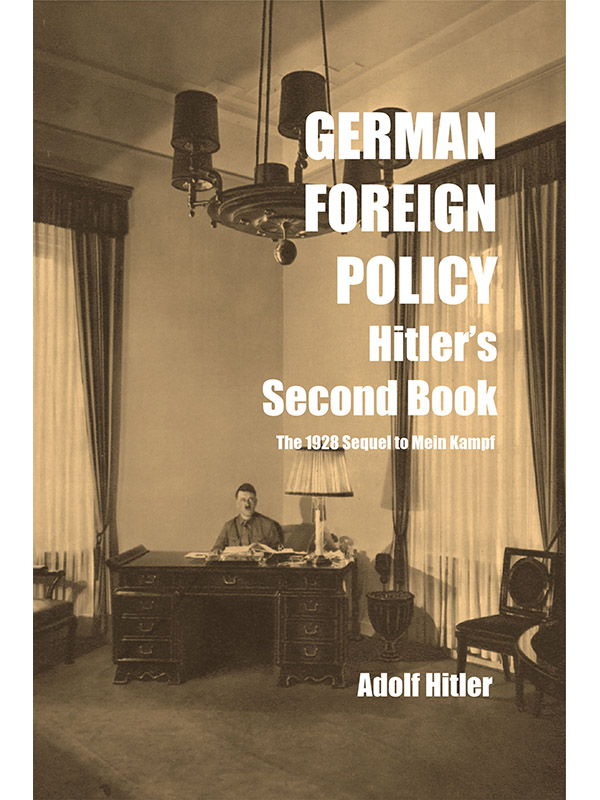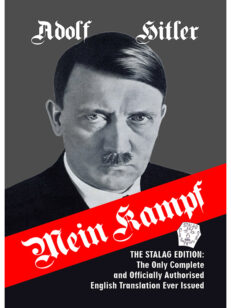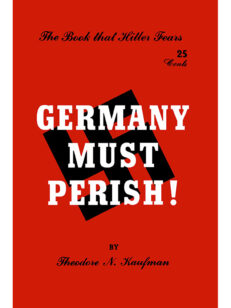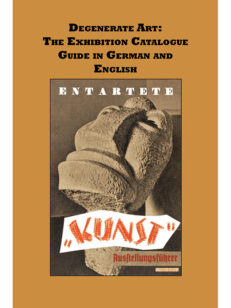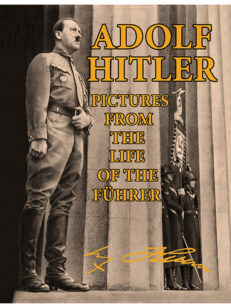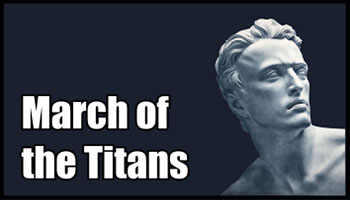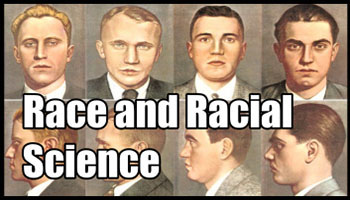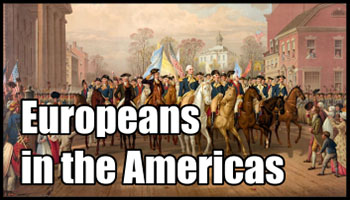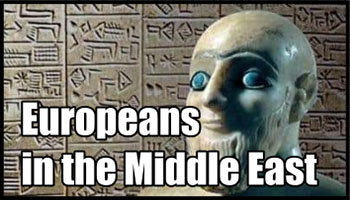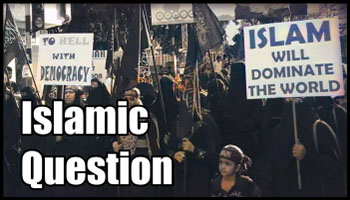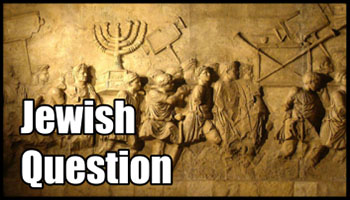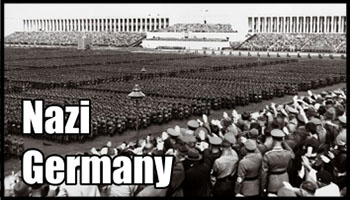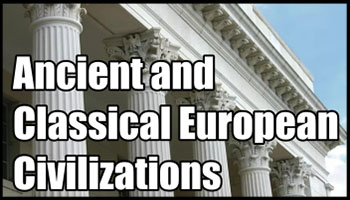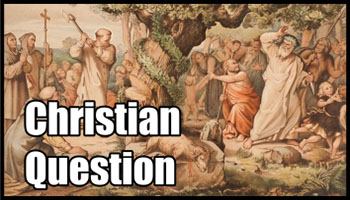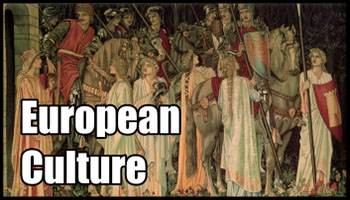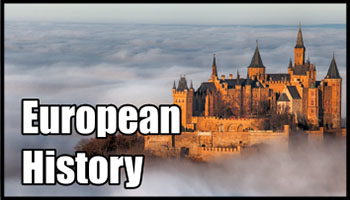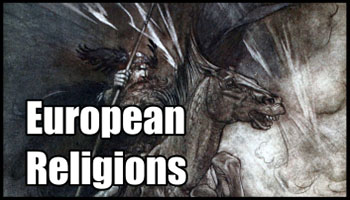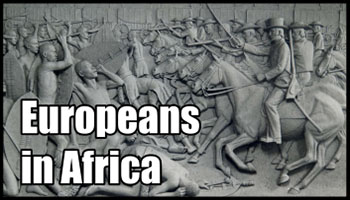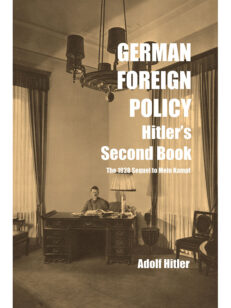Description
By Adolf Hitler. Translated, Introduced and Annotated by Arthur Kemp B.A (Int. Pol., Pol. Sci., Pub. Ad.) Often called Hitler’s “Secret Book,” this is the only full-length, completely unedited and correctly translated text of Hitler’s second book, written to explain National Socialist foreign policy.
Dictated in 1928 to Max Annan, head of the NSDAP’s publishing house, the unedited and draft manuscript, provisionally titled Deutsche Aussenpolitik but later more commonly known as Hitler’s “Second Book,” was never published in Hitler’s lifetime.
Originally written as a propaganda recruitment tool designed to generate support for the NSDAP at the time of what he saw as an artificial crisis in German nationalist circles over the Italian occupation of South Tyrol, Hitler’s second book is of necessity dated with regard to some time-specific events.
Nonetheless, it contains much more than just a discussion of the South Tyrol issue. Within these pages, the reader will find the philosophical principles which underwrote National Socialist domestic and foreign policy, and a large number of astonishingly accurate and prescient foresights into many pressing international issues which still occupy the world stage in the twenty-first century.
Read Hitler’s predictions on:
– The economic, social and racial problems posed by European unification;
– American immigration policy and its racial meaning;
– The need to temper foreign policy with realism;
– The threat posed by modern air warfare;
– The possibility that the Jewish Communists would lose power in the Soviet Union;
– The racial values which underpinned the British Empire;
– The negative influence of birth control upon European population growth;
– The eugenic danger of war in general;
– The threat which outsourcing to the Far East poses to Western economies; and
– The role of International Jewry in influencing world affairs and inciting conflict; amongst many other topics.
The philosophical principles which Hitler endorsed—that victory goes to the strong and the brave, and that the meek shall inherit nothing—were equally applicable to both domestic and foreign policy, two areas which he saw as irretrievably interlinked.
“In general freedom is preserved neither by begging nor by cheating. And also not by work and industry but exclusively by struggle, and indeed by one’s own struggle.”
“This accumulated hatred was discharged in the typically bourgeois-national fulmination and battle cry: ‘God punish England.’ Since God is just as much on the side of the stronger and the more determined, as well as preferably on the side of those who are cleverer, He manifestly refused to inflict this punishment.”
“For this earth is not allotted to anyone, nor is it presented to anyone as a gift. It is awarded by Providence to people who in their hearts have the courage to take possession of conquering it, the strength to preserve it, and the industry to put it to the plough.”
This edition contains the full text, translated from the German original, and includes the article “How America entered the War”—to which Hitler referred and intended to add to the manuscript—as an appendix. Also contains a full index.
CONTENTS
Introduction: The Story of the Manuscript
Foreword
The South Tyrol question—Blindness of the bourgeois nationalists—Italy, not France, the desirable ally.
Chapter I
History is the story of peoples’ struggles for existence—Peace and war as means of waging the struggle—Neither should be the sole means—Too much war kills off the elite—Too much peace leads to submissiveness and emigration.
Chapter II
Territorial conquest is necessary for a people’s security and healthy growth—Morality of conquest: no one owns any part of the Earth—Birth control eugenically unsound—Spartan exposure logical—Emigration sacrifices best elements—Increase in productivity of no help competitively—Export trade vanishing as other nations modernize—Necessity of strife.
Chapter III
Weapons on hand no gauge of national strength—National will the decisive factor—Old German army as source of people’s will and discipline—National-Socialist mission to revitalize national will—Blood and folk values superior to internationalism—Leadership superior to mass democracy.
Chapter IV
Must learn from the past—Must forge the instruments for change to a fruitful German foreign policy—Correct ideas valueless unless translated into action—The Pan-German League—Necessity of taking risks—Policies must be carried out with vigor even if total success not guaranteed—Breaking the circle of enemies of Germany.
Chapter V
NSDAP is socialist and nationalist—Bourgeois nationalists aim to restore Germany’s pre-war frontiers—NSDAP foreign policy aims at territorial expansion, and bringing Germans under German sovereignty—Folkdom as basis of policy.
Chapter VI
Need of alliances to achieve German aims—German borders unsatisfactory both economically and militarily
Chapter VII
Lack of national goals after Bismarck—Democracy responsible for bungling—Goal should have been acquisition of German areas of Europe—Worthlessness of Hapsburg Empire—German part of South Tyrol would be German territory today if territorial policy had been followed—Catholic Center and Jewish Social Democrats blocked territorial policies—Worthlessness to Germany of Triple Alliance—Destruction of Germanism in Austria-Hungary—Unwise failure to support Italy in Tripoli—Italy cannot oppose England—Austria sole profiteer from Triple Alliance—German colonial policy a blunder, led to conflict with England—Western Russia the proper area for German expansion.
Chapter VIII
Lack of German war aims in World War—Aim should have been territorial, prize lands for fighter-farmers—Decline of “old” army—Deficiencies of today’s mercenary army—Bismarck and preventive war—Germany’s two-power land standard—America has upset balance of power—Reichswehr turned into domestic police force—Need for nationalist spirit—Border-restoration policy will lead to coalition of victor nations—Beer-hall patriots’ empty talk of “national honor”.
Chapter IX
Germany today powerless to defend honor or borders—Increased production no solution—England won’t tolerate merchant trade competition—Emigration no solution—American racial immigration policies—Pan-Europeanism no solution, leads to loss of folk-values—American values based on dominant kindred groups.
Chapter X
Neutrality as policy means some other nation wins—Desirability of action—Worthlessness of League of Nations—American greatness the result of intervention in World War—Italy justified in deserting Triple Alliance.
Chapter XI
Franco-Russian and Anglo-French alliances surround Germany—Militarily indefensible German borders—Vulnerability of German cities to attack from the air—Russian alliance would be catastrophic—France always the enemy—Soviet Russian goal is Jewish communist poisoning of Germany—Jews have destroyed Russian elite—Russo-German alliance would mean invasion of Germany from West—Russian alliance would block German expansion by conquest of Russian territory—Jews dominate Russia, but could in future be displaced by “National Bolshevism.”
Chapter XII
Eight principles.
Chapter XIII
Inaction dangerous—Peaceful economic expansion no solution—Border restoration policy futile—Necessity of Völkisch territorial policy.
Chapter XIV
English race-values—Colonies—England doesn’t oppose continental power, but does oppose trade and naval rivals—Wilhelm II squandered resources on German fleet—Could have had understanding with England—England threatened by France on continent, America on the seas, and Russia in Asia—Jewry in England a threat to an Anglo-German alliance.
Chapter XV
Italy promising as German ally—Mussolini and race-values—Must forget Italy as enemy in World War—Italy natural enemy of France, natural ally of England—Germany should also have abandoned Austria-Hungary—Blindness of bourgeois nationalists who oppose Italy and Mussolini—South Tyrol—Jews use Tyrol to set Italy and Germany at odds—Germans in Alsace, Poland, etc., just as important as those in South Tyrol—Advice to Mussolini—The true villains who bear guilt for the South Tyrol—US Secret Service Head Reveals Why America Entered the War.
Chapter XVI
Italy as an ally of Germany—England, and perhaps Hungary and Spain, as allies of Germany—Jewry responsible for German disaster in World War—An overview of Jewish interventionist tactics in International Relations.
Appendix 1: How America Entered the War: Article originally meant to be inserted in Chapter XV
Index
197 pages. Paperback.

